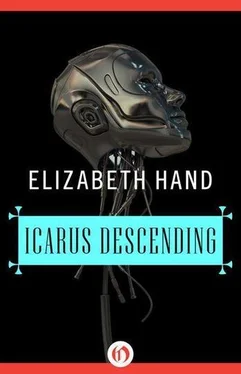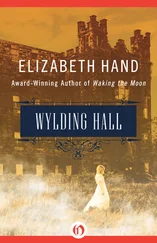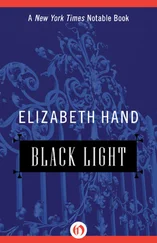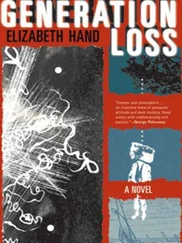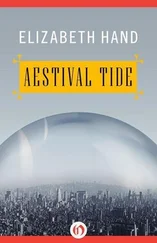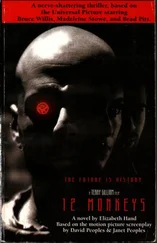“Oh, but those are people, Jane,” he said with great earnestness. “Everyone here is treated just exactly the same. That’s the whole meaning of the Alliance: no more slaves. Everyone is treated the same, ” he ended firmly.
“Except for human prisoners like us, I expect,” said Jane.
Edward shrugged, pulling at the frayed collar of his blue uniform. “I don’t expect you’re actually prisoners. I mean, you’re members of the Alliance, aren’t you?” When we said nothing, he read it as agreement. “Well, then, you’re not prisoners—you’re rebels,” he finished, and walked on.
“Rebels, huh,” Jane repeated, looking after him balefully. “Well, among your rebels, have you happened to see a chimpanzee—a talking chimpanzee, name of Miss Scarlet Pan? She was abducted by one of your rebels. An aardman. Fossa. He was at Seven Chimneys with us.”
Edward glanced back and stroked his chin. “A talking chimpanzee? No, ma’am, I don’t think I’ve seen that. I don’t think I’d forget it if I had.”
Jane sighed. “No, I don’t think you would.”
The Paradise Caverns were endless. Each passage we walked through branched off into dozens of others, some luridly lit by electrical lights or sputtering torches, others black and ominous, with ineffectual links of rusted chain strung across their entrances and little handwritten WARNING! signs. Crates and stacks of supplies were heaped on the floor. Against the walls cartons and bales of wire leaned precariously, between sacks of grain and sodden bales of alfalfa and sheaves of wheat. Where grain had spilled upon the stone floor, it remained unswept and uneaten—I had seen no evidence of rodents, except for the bats that hung like sheets of drying meat in the reaches of some of the larger caves.
Weapons were treated with equal carelessness, and again I wondered how this so-called Alliance could be so successful. I’d seen no real evidence of organization, no one acting in authority except for the nemosyne Metatron and, perhaps, Luther Burdock—though Burdock seemed more of a human puppet, albeit a mad one, than he did any kind of leader. Yet somehow the members of the Alliance had managed to sabotage Ascendant and Commonwealth targets, at least enough of them to put by great stores of weapons and liberate those geneslaves who now called themselves rebels.
I slowed my footsteps every time we passed those seemingly forgotten piles of guns and other artillery. Once, while Edward Dean deliberated between which of two passages to choose, I caught Jane staring greedily at a row of sonic guns leaning haphazardly against one wall. Cadence had taken Jane’s pistol before we left Seven Chimneys. It would have been absurdly simple for her to grab a weapon now—no one seemed to be guarding any of the stores. Indeed, except for two uniformed men who greeted Edward with loud, even overstated, cheerfulness, we passed nobody at all.
But Jane left the weapons where we saw them. Perhaps she felt as I did, that we had seen enough killing since we fled the City of Trees. Or perhaps she was simply afraid.
We did see plenty of old signs. Edward ignored them, but Jane made a point of reading each aloud:
OBERON’S PLAYROOM
GRAMPY’S NICHE
THE FAIRY BALLROOM
ANGEL’S ROOST
MARTHA’S WEDDING CAKE
Edward’s interpretation of the same places was more mundane.
“That’s the secondary war room.”
“Aardmen’s storage rooms.”
“Mess hall.”
“Dr. Burdock’s meditation room.”
“That’s some big ol’ stalagmite.”
There were also many little metal placards warning visitors not to touch rock formations, informing us of the temperature inside the Caverns (fifty-five degrees Fahrenheit, year-round) and the hours of the cafeteria and the Gift Shop (ten A.M . to six P.M .). More foreboding were the hand-lettered signs, inked on cardboard or warped sheets of plywood, the uneven letters spelled out painstakingly, as though by hands unaccustomed to holding pen or brush.
ICARUS IS COMING
ARE YOU PREPARED?
AD ASTRA ASPERA, VICTORY IS OURS!
CASSANDRA WELCOMES ICARUS
THE NIGHT IS HIS—SOON ALL WILL BE HIS!
Most ominous of all were placards that showed only a smudged swirl of white or gray paint, daubed with black to indicate a sort of eye; and underneath a single word.
ICARUS
“Who is this Icarus?” Jane finally demanded. We had been walking for nearly an hour, following a circuitous route that seemed deliberately planned to keep us from being able to find our way out again. Now we stood at a little crossroads where two tunnels met: a wide passage where cool air flowed and the sound of distant water echoed, and a second, very narrow corridor of stone, with rippling walls covered with the crystalline formations called anthodites, glittering spines that looked as though they would rip through your clothes if you brushed against them.
“Icarus?” Edward Dean stopped and eyed us suspiciously. “What do you mean?”
“I mean these signs.” Jane tapped the corner of a damp curl of cardboard, her finger sending a filigree of limestone splintering from the wall. “Icarus, Icarus, Icarus. Must be an important person.”
Edward shook his head. “Not a person, really,” he said uneasily, then looked as though he had admitted too much. “You’ll see tomorrow.”
And we walked in silence once more, until the near-darkness grew oppressive and I finally spoke, as much to hear the sound of a voice as to learn something.
“Is this where Dr. Burdock lived? Here in the Caverns? Before—well, before things happened to him?”
Our guide shook his curly head. “Oh, no. He lived up there, in Cassandra with the rest of us.”
He stopped, pointing at the ceiling, then explained, “I mean, I wasn’t alive, all those years ago; but my great-great-great-grandfather was. Ran the toll booth there at the Shenandoah Bridge. Dr. Burdock had a place outside of town. Big research facility, and a house too. It’s all still there, at least the ruins are—they burnt it before the Third Ascension. You know, when the fanatics took him and his girls and killed ’em.”
His wide blue eyes glinted in the shadows as he went on. “You know, Dr. Burdock is a real important person in these parts. He was a very great man, but he was a kind man, too. Cassandra was just a poor hollow in the mountains back then, but when he started his laboratory here, he gave jobs to a lot of people. We have ’files here of his work,” he said reverently, “you know, the first experiments with Cybele Burdock and Lacey—that was his dog—and all sorts of other records as well. He always took very good care of the people who worked for him. My family never did, but just about everyone else here is descended from people who worked for Luther Burdock. The survivors, I mean, those who weren’t killed when the fundamentalists came into power and tried to put a stop to his work. So you have to understand, when the Doctor came back—well, it was like Elvis or Jesus or one of the other Prophets rose clear up from the dead.”
I thought of the Paphians’ cult of the Gaping One and tried not to grimace. “Who brought him back?”
Edward stared at his feet, moving the tip of one worn canvas shoe to trace something indecipherable on the stone floor.
“Other scientists,” he said at last. He glanced furtively up the passage before continuing. “People who’d fled the Ascendants—oh, a long, long time ago, well after the Third Shining at least. They’d been carrying on Dr. Burdock’s work long after his death—trying to bring him back, you know. They came here, I guess, because Cassandra has always been a place where we don’t like other people telling us what to do.”
Читать дальше
